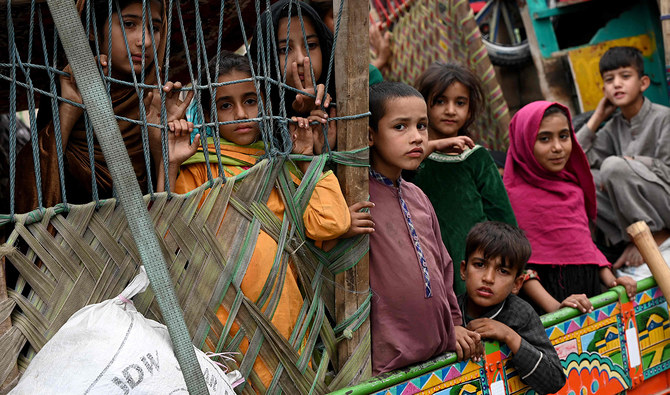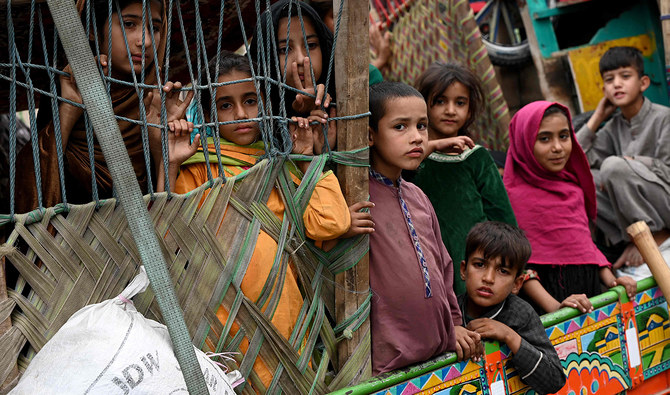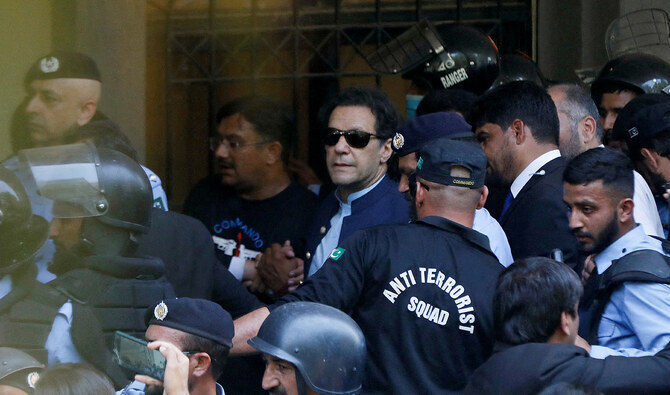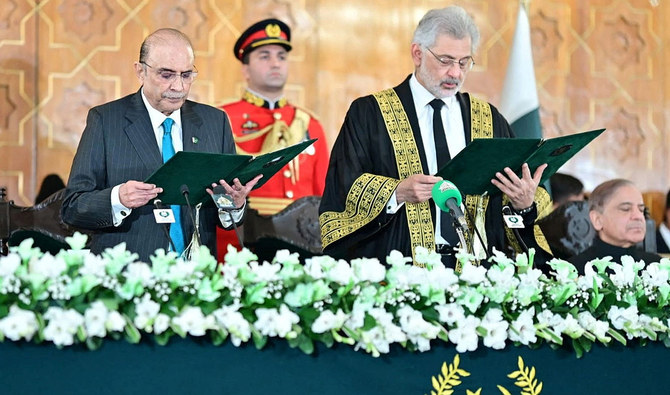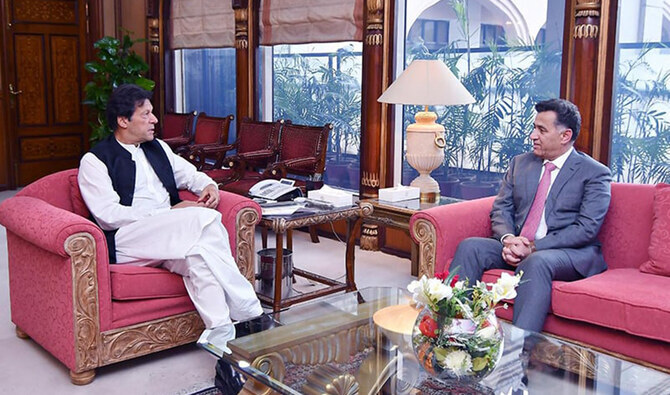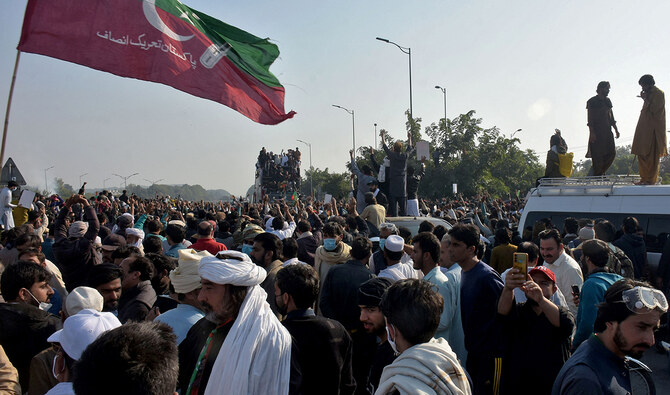TORKHAM, Afghanistan: Khalida’s young son fell ill while they were on the road to Afghanistan, racing to leave Pakistan under threat of deportation.
But while they reached their home country before a November 1 deadline set by Islamabad, they could barely get enough food or water to keep up the boy’s strength, let alone the proper medication.
“We don’t have anything to feed him, we got some vegetables yesterday and today so far he has only had a cup of green tea. There is no milk,” said the 25-year-old, holding her son Abdullah, who is under two years old.
“Money talks, but we don’t have any. What can we do?“
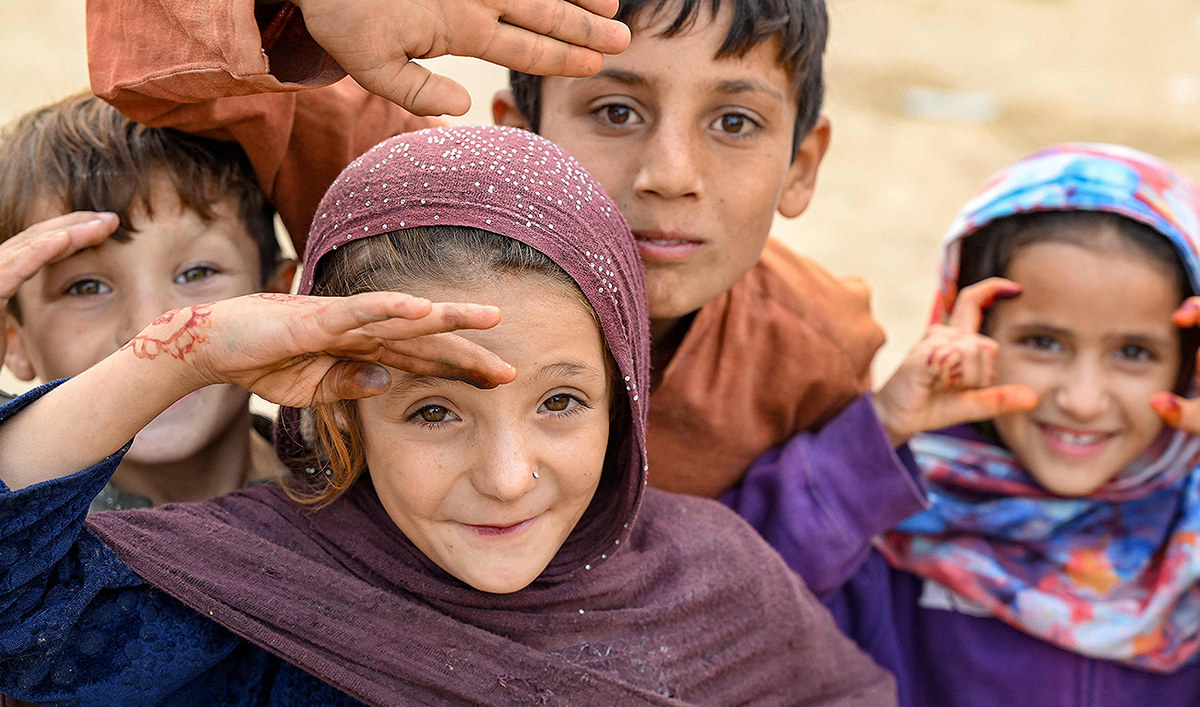
Afghan refugee children gesture as they prepare to depart for Afghanistan, at a holding centre, in Landi Kotal on November 1, 2023. (AFP)
She and her other children sat next to a brightly painted truck, one in a sea of vehicles stacked with belongings clustered near the Torkham border crossing, where thousands of Afghans have returned from Pakistan in recent weeks.
Islamabad issued an ultimatum in early October to 1.7 million Afghans it says were living illegally in Pakistan: leave voluntarily or face arrest and expulsion.
In the week before the deadline, a stream of Afghans heading home has turned into a flood, with authorities working from dawn till dusk to register the new arrivals but struggling to keep up.
The number of returnees has mounted daily — at least 29,000 people crossed into Afghanistan on Tuesday alone — sparking an “emergency situation” at the border post, a border official said.
Conditions deteriorated rapidly in just a few days ahead of the deadline, AFP journalists saw, with many parents expressing worry for children who had fallen ill after sleeping out in the cold.
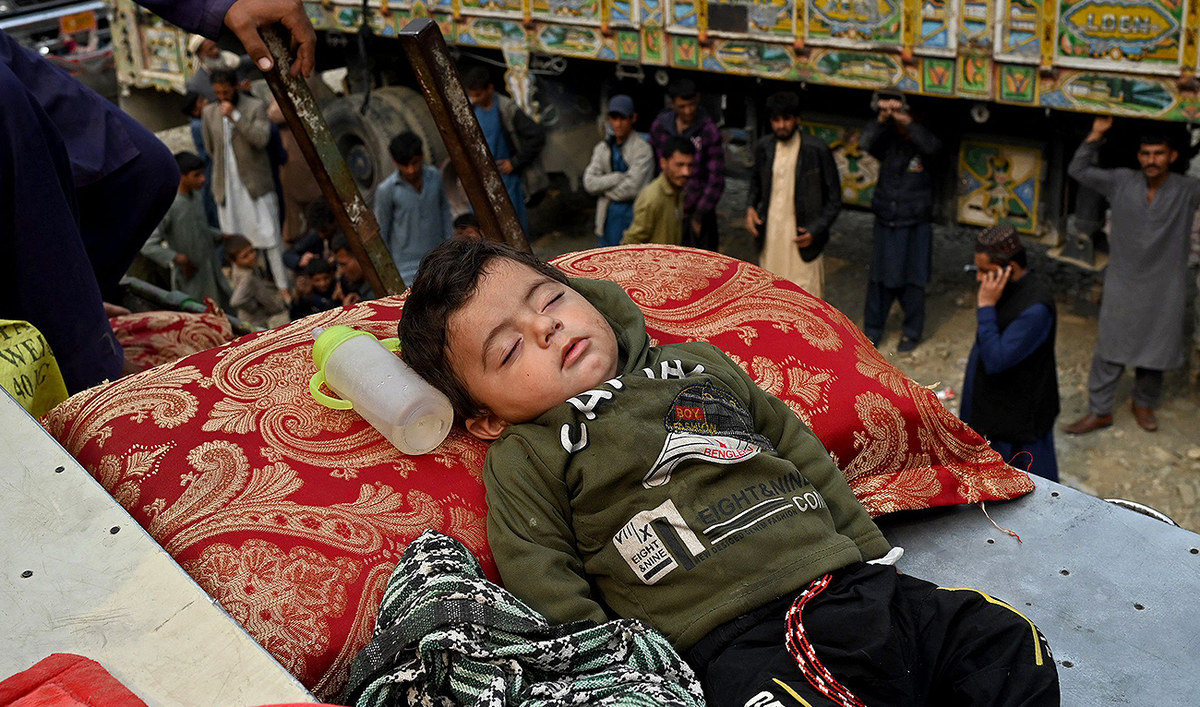
An Afghan child refugee sleeps above a truck as he arrives from Pakistan at the Afghanistan-Pakistan Torkham border in Nangarhar province on November 1, 2023. (AFP)
“He (Abdullah) has diarrhea. We took him to the doctor,” Khalida said. “This woman’s child is sick but she said, ‘Let him be, God will heal him’,” she added, gesturing under her pale pink burqa to a woman nearby.
Taj Mohammad, who traveled from Peshawar just across the border and was waiting to register with the government before going to nearby Jalalabad, said his two-month-old son had developed a chest infection.
“Babies are suffering from flu and chest infections, not only mine but every baby. The weather is cold at night and there are not enough resources.”
Diapers littered the area around the sea of trucks, people and industry that has sprung up around the ad hoc camp, but most people have nothing to clothe their small children in, and human excrement was everywhere.
The government and UN agencies have scrambled to provide services and support, including mobile toilets, water tanks and other supplies, but “we need it to be more,” said Mohammad.
Frustration has mounted with the bottlenecked process. Food and water remain scarce.
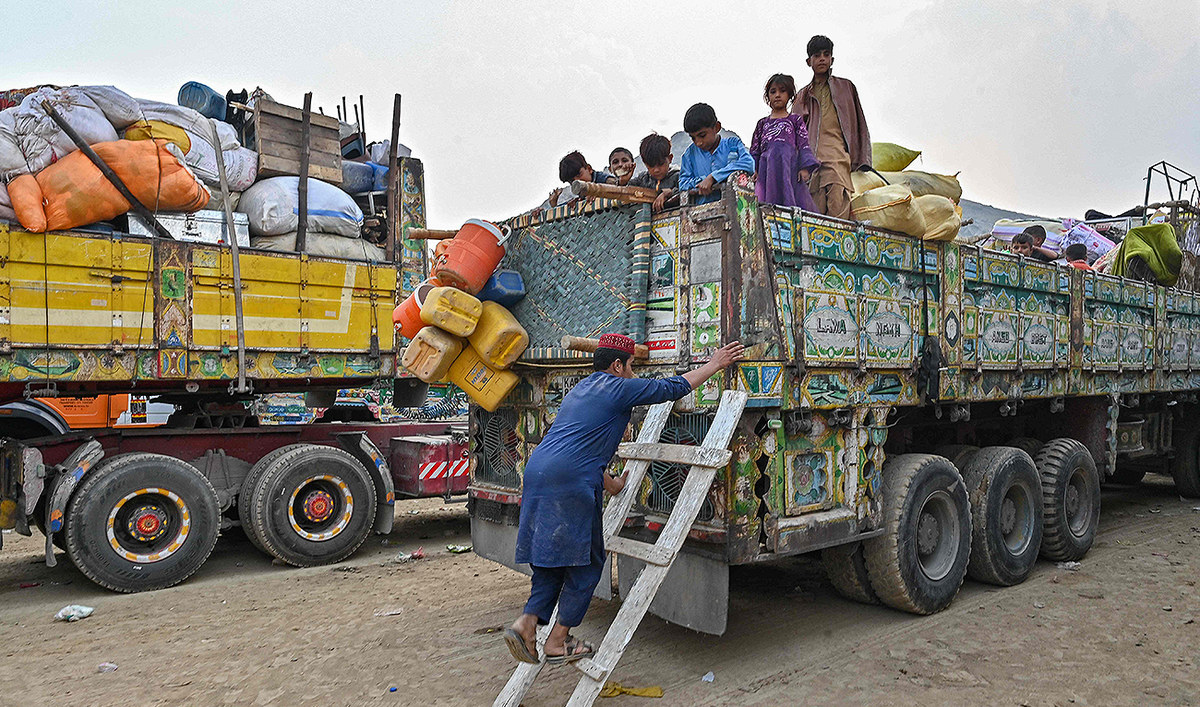
Afghan refugees arrive in a truck at a holding centre as they prepare to depart for Afghanistan, in Landi Kotal on November 1, 2023. (AFP)
“There are fights, people are losing patience. I am young, I will somehow bear this situation but how can a child bear all this?” said Mohammad Ayaz, 24, who crossed the border with 10 family members.
Najla Dilnaz, 25, said she was saving all the water they had for drinking, even as her children’s clothes and skin accumulate dirt from the dusty riverbed near the crossing.
“We don’t wash their hands or feet, there is just some (water) for drinking, we are surviving with that,” she said.
“We drink little and we don’t wash at all.”
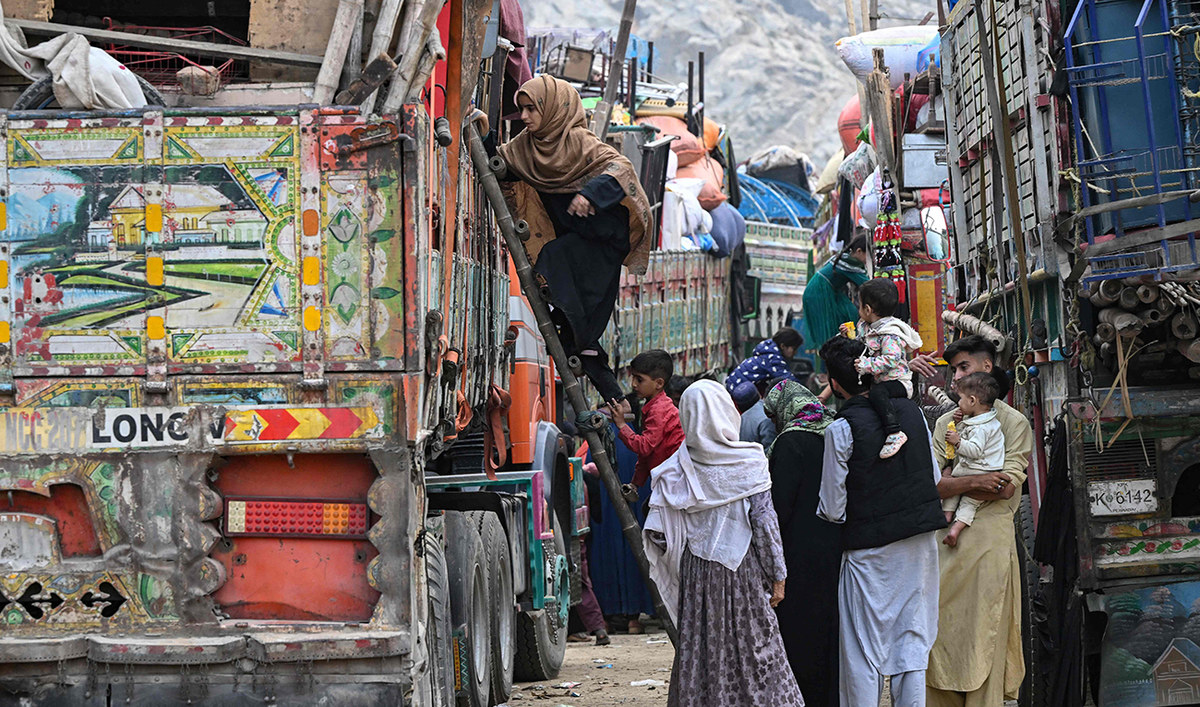
Afghan refugees climb a truck as they prepare to depart for Afghanistan, at a holding centre in Landi Kotal on November 1, 2023. (AFP)
The Pakistani government said its order in early October was to protect Pakistan’s “welfare and security” after a sharp rise in attacks it blames on militants operating from Afghanistan, which Taliban authorities deny.
The order and a crackdown by authorities spurred thousands of Afghans to hurriedly pack what they could and rush to the frontier, unwilling to risk police action or deportation.
For some, that meant abandoning their whole lives or handling the possibility of giving birth along the way, as at least 30 women have, a border official said Monday.
Rabia, a 32-year-old Pakistani, and her Afghan husband packed up their belongings in a rush and had been at Torkham for three nights already on Wednesday.
She is pregnant with her sixth child and due in a less than a week.
They have no home or land to go to, and there is nothing they can do for now but wait, she said.
“Whether it’s easy or hard, we are here now.”


